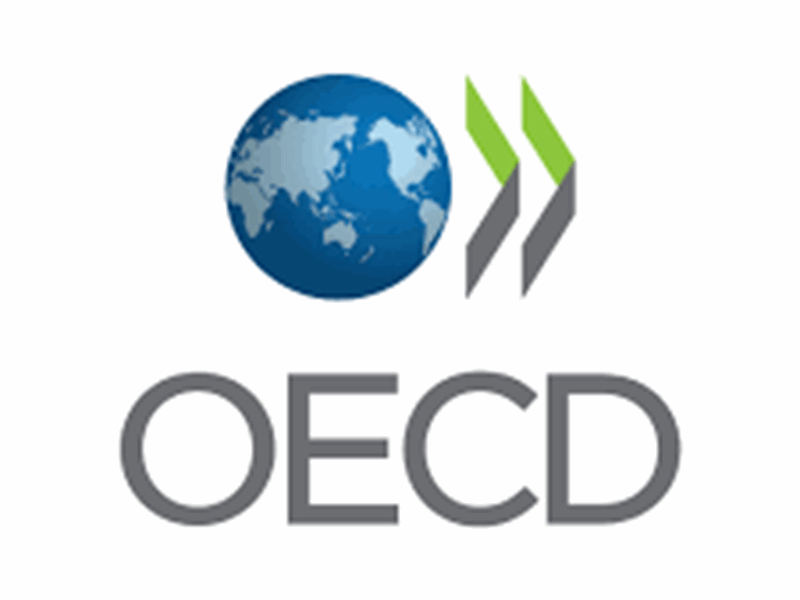Int'l Tax News
Posted on
Multilateralism or Bilateralism in Building a Tax Treaty Network: A Comparison

P.V.S.S. Prasad explains the difficulties of reaching multilateral agreements among jurisdictions with varying tax and economic policies, and he argues that bilateralism will remain prominent because it avoids those difficulties while still allowing negotiators to address their specific concerns.
Posted on
Trump Executive Orders Bring U.S. Course Change on International Tax

Mindy Herzfeld examines the potential impact of recent U.S. executive orders on international tax and trade policy.
Posted on
Opinion: A Critical Look at Trump’s Economic Plans

The effects of tariffs and tax cuts will be mild, but an immigration crackdown is cause for real concern.
Posted on
Trump Offers Carrots and Sticks in Davos Speech

President Trump used an address to prominent global business leaders to invite investment in the United States with the promise of low taxes but warned of stiff tariffs for companies that decide to forgo his proposition.
Posted on
EU Member States to Tackle Open DAC9 Issues

The EU Council’s Polish presidency has asked member states to exchange views on several open issues regarding the latest amendment to the directive on administrative cooperation, which will implement the OECD's standard global anti-base-erosion information return.
Posted on
House Republicans Reintroduce Anti-Pillar 2 Legislation

House Republicans have reintroduced legislation that would increase U.S. tax rates on foreign companies and investors if their countries impose extraterritorial measures on U.S. companies, like those found in the OECD international tax reform plan.
Posted on
Jason Smith Announces Bill to Counter Foreign Taxes

According to a U.S. official, challenges in global anti-base-erosion (GLOBE) rules negotiations under the OECD's pillar 2 taxation framework have made a permanent safe harbor provision seem unlikely.
Posted on
Trump Orders Treasury to Investigate Discriminatory Taxes

Treasury must act under section 891 to investigate whether foreign countries are subjecting U.S. citizens or companies to discriminatory taxes, President Trump directed as part of an executive order issued January 20.
Posted on
EU Laments Trump’s Disregard for OECD’s Global Tax Plan

The European Commission said it was disappointed by President Trump’s announcement that the United States will pull out of the OECD’s international corporate tax reform deal, while others displayed a “told you so” attitude.
Posted on
Oxfam Urges Governments to Use U.N. Convention to Tax Richest

Noting that EU billionaires grew their collective wealth to €2.2 trillion by the end of 2024, Oxfam International called on EU countries to use the U.N. tax convention to effectively tax the ultrawealthy.
Posted on
Businesses Slam EU Countries After U.S. Rejects Global Tax Plan

The United States’ rejection of the OECD global tax plan shows that there are different approaches to competitiveness on either side of the Atlantic, despite the EU’s promise to declutter its tax system, a business representative said.
Posted on
White House Says Global Minimum Tax Has ‘No Force or Effect’

The OECD global minimum tax rules have “no force or effect within the United States absent an act by the Congress adopting the relevant provisions of the Global Tax Deal,” because they expose American companies to retaliatory international tax regimes, the White House said in a January 20 memorandum.
Posted on
International Tax Wish List for 2025: Technical Fixes

Mindy Herzfeld examines how proposed updates to the Tax Cuts and Jobs Act could be an opportunity to fix its international provisions.
Posted on
Illustrations and Critiques of Amount B and the New OECD Excel Tool

J. Harold McClure poses two illustrations of the appropriate profit margin for a distribution affiliate, contrasting the implications of amount B with a more straightforward economic model.
Posted on
Trump’s Proposed Tariff Agency Raises Questions, and Confusion, for Experts

President Trump wants an External Revenue Service to collect tariffs on imports. One trade expert said the move may be “more branding than substance.”
Posted on
Trump Promises Tariffs on Canada and Mexico, and Paves Way for Further Trade Action

The president said he planned to put tariffs on America’s neighbors on Feb. 1, as he signed an executive order mandating a sweeping review of U.S. trade policy.
Posted on
OECD Targeting Some Transactions to Protect Pillar 2 Integrity

The OECD is working on identifying related-party transactions entered into by taxpayers that may pose integrity concerns under the pillar 2 global minimum tax rules, an OECD tax adviser said.
Posted on
Trump’s Tariff Plans Prompt Retaliation Threats From Canada

A statement joined by the majority of Canada’s first ministers says that the government could pursue retaliatory measures if U.S. President-elect Trump follows through with threats to introduce tariffs on Canadian imports.
Posted on
OECD Issues Another Global Minimum Tax Rule Guidance Package

The OECD has published more administrative guidance for the global minimum tax rules, including a list of legislation temporarily qualified as pillar 2-compliant and advice on deferred tax assets aimed at preserving the rules’ integrity.
Posted on
Pillar 2 Permanent Safe Harbor in the Works, Levine Says

Technical work is underway on a possible permanent safe harbor for multinational enterprises in scope of the pillar 2 global minimum tax rules, according to Treasury’s top OECD negotiator.
Posted on
OECD Publishes Compilation of Global Minimum Tax Guidance, Tools

The OECD inclusive framework on base erosion and profit shifting has published a variety of tools and guidance regarding the administrative implementation of the global minimum tax under pillar 2 of the OECD's two-pillar tax reform plan, along with a central record of legislation that clarifies the member jurisdictions that have secured transitional qualified status for minimum tax purposes.
Posted on
OECD Publishes GLOBE Rules Guidance on Deferred Tax Assets (1)

The OECD on January 15 published administrative guidance regarding the application of article 9.1 of the global anti-base-erosion model rules to deferred tax assets from benefits arranged by the government or new corporate income tax rates introduced after November 30, 2021.
Posted on
OECD Publishes Central Record of Global Minimum Tax Compliance

The OECD on January 15 published a central record of legislation with transitional qualified status, providing information on the member jurisdictions whose implementation of the global anti-base-erosion model rules has been deemed consistent with the OECD's standard during a transition period.
Posted on
OECD Publishes Guidance on GLOBE Information Return

The OECD on January 15 published a guide on how to complete the global anti-base-erosion information return, including a template that can be used to alert member jurisdictions that they will receive the returns through the exchange of information procedures.
Posted on
Trump’s Treasury Pick Defends Plans to Cut Taxes and Raise Tariffs

Scott Besent, President-elect Donald J. Trump’s choice to be Treasury secretary, will be in charge of steering the president’s economic agenda if confirmed by the Senate.
Posted on
Top OECD Delegate Says US Is at 'Crossroads' on Global Tax Deal

The US has a critical decision to make in the near future over whether it will continue to negotiate at the OECD and see through the work on the global minimum tax, a top Treasury official said Thursday.
Posted on
Can Treasury Make Amount B Mandatory After Loper Bright?

Ryan Finley explains why Treasury and the IRS likely have the statutory authority to make a simplified approach to baseline distribution mandatory.
Posted on
Estes Warns U.S. Allies of Shift in Global Minimum Tax Stance

The second Trump administration and Republican-controlled Congress are poised to oppose the OECD’s global minimum tax rules, and countries shouldn’t ignore the policy shift, according to House Ways and Means Committee member Ron Estes, R-Kan.
Posted on
TCJA: The False Dawn of Tax Reform

Doron Narotzki and Vered Narotzki argue that the Tax Cuts and Jobs Act’s short-term economic stimulus has been overshadowed by mounting fiscal challenges and unfulfilled promises. They highlight concerns about the sustainability of extending the expiring provisions without addressing revenue shortfalls and call for a targeted restructuring of the TCJA provisions to prioritize long-term fiscal stability over short-term political gain.
Posted on
OECD Confirms Countries With Qualified Minimum Tax Rules

The OECD on Wednesday provided an update with a list of countries that have implemented minimum tax legislation that meets the secured transitional qualified status.
Posted on
OECD Bars Some Deferred Tax Assets in Global Tax Calculation

Certain deferred tax expenses will be excluded from transitional global minimum tax calculations under new OECD guidance, in an effort to prevent taxpayers from manipulating such calculations.
Posted on
EU Seeks Quick Adaptation to Future Pillar 2 Infor Exchange Tweaks

EU member states are discussing legal ways to ensure that any future changes to the OECD’s standard global anti-base-erosion information return that are implemented through the EU administrative cooperation directive can be introduced quickly.
Posted on
Amount B Framework Concerns Persist in OECD Tax Negotiations

Concerns from some jurisdictions about a key part of the amount B transfer pricing simplification framework remain a hurdle in finalizing an agreement on pillar 1 of the OECD’s two-pillar global tax reform plan.
Posted on
Germany and Netherlands Identify EU Tax Rules to Amend or Revoke

Pillar 2’s global minimum tax “will secure a broad level of protection against harmful tax competition and aggressive tax planning” and some EU antiabuse rules should be simplified or abolished, Germany and the Netherlands said.
Posted on
U.S. Tax Creditability of French Cotisation Subsidiaire Maladie

Hilary B. Miller explains the basis on which a foreign tax is creditable for U.S. taxpayers and applies the reasoning to France’s social charge called the cotisation subsidiaire maladie.
Posted on
OECD Publishes Paper on Business Functions, Corporate Taxation

The OECD on January 13 published a working paper on the relationship between multinational enterprise business functions and effective corporate taxation using country-by-country reporting data from 2017-2021, finding that business functions are effectively influenced by tax incentives and antiavoidance rules and that tax has less influence on corporate decisions regarding routine functions such as manufacturing and sales.
Posted on
OECD Co-Chairs Issue Statement on Pillar 1 Negotiations

The OECD inclusive framework on base erosion and profit shifting's co-chairs issued a statement January 13 about the current state of pillar 1 negotiations, reiterating its commitment to ironing out the concerns that member jurisdictions have regarding amount B provisions and reaching a finalized agreement.
Posted on
Proposed PTEP Regulations, Dividend Equivalent Redemptions, and Granite Trust

Lee A. Sheppard considers what happens to basis in dividend equivalent redemptions involving controlled foreign corporations with earnings and profits representing previously taxed earnings and profits, a problem Treasury plans to address in future rulemaking.
Posted on
Digital Transaction Regs Undergo Big Changes After Taxpayer Concerns

Regs on cloud and digital transactions have undergone significant changes from earlier rules, answering practitioners' calls to adopt a predominant character rule surrounding transactions and modify sourcing and cloud classification rules.
Posted on
Final DPL Regs Provide Carveouts for Minority Interests

Final regulations on applying disregarded payment losses provide widespread relief by delaying the implementation date and creating carveouts for royalty payments and fractional ownership.
Posted on
EU Publishes Final FASTER Withholding Directive

The EU has published the final Faster and Safer Relief of Excess Withholding Taxes directive, which was approved by the EU Council in December 2024 and allows member jurisdictions to provide relief of excess withholding taxes on cross-border investments as part of its initiative to tackle tax fraud.
Posted on
Donald Trump’s return raises prospect of global tax war

According to a U.S. official, challenges in global anti-base-erosion (GLOBE) rules negotiations under the OECD's pillar 2 taxation framework have made a permanent safe harbor provision seem unlikely.
Posted on
EU Research Institution Publishes Pillar 2 Working Paper

The EU Tax Observatory published a working paper January 8 explaining how the OECD's pillar 2 global minimum tax rules could affect government revenue and the potential impact on profit shifting using data reports from active multinational enterprises in Slovakia, finding that the 15 percent global minimum tax could help increase the country's corporate tax revenue by 4 percent.
Posted on
A TJCA Update Is Needed Now for the Definition of Intangible

Ryan Finley explains why Treasury and the IRS shouldn’t indefinitely postpone a Tax Cuts and Jobs Act-conforming update to the transfer pricing regulations’ definition of intangible.
Posted on
Trump Denounces Reports of Scaled-Down Tariff Policy

President-elect Trump has said newspaper reports that his aides are working on tailored tariff plans that would only target critical imports are incorrect.
Posted on
A Fresh Start: Searching for Consensus in International Tax Reform

In this article, Sol Picciotto argues that the negotiations at the U.N. offer an opportunity to overcome the increasing dissensus in international tax rooted in the polarization between residence and source taxation, and that while a new consensus may be difficult to reach, it could be more sustainable.
Posted on
Will the New Administration Take Down Controversial Regs?

Mindy Herzfeld reviews existing controversial regulations and discusses whether they are likely to be eliminated under the incoming presidential administration.
Posted on
OECD’s Two-Pillar Tax Reforms Enter Murky Waters in 2025

As the pillar 1 agreement hangs in the balance and questions arise about pillar 2 global minimum tax implementation, the outlook for the OECD-brokered tax reforms is anything but crystal clear.
Posted on
How 2025 Will Weave Tax Into the EU’s Policy Baskets

With a fresh European Commission ready to make its mark and Poland steering the EU Council presidency, 2025 is poised to shape the role of taxation in the bloc’s policies for the next five years.
Posted on
Global North and Global South Set for Showdown at U.N. Tax Talks

Global South countries are prepared to dive into substantial tax matters for the U.N. tax convention this year, but they could be waylaid by Global North countries demanding more specifics about the decision-making process.


































